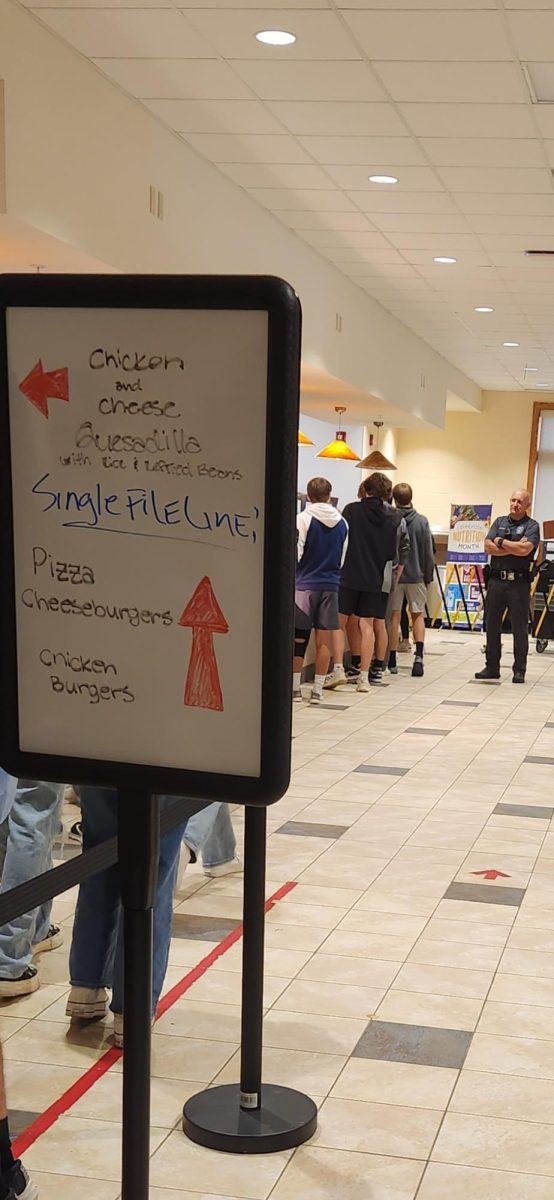As students enter their Senior year, they are often asked by those around them, “So, where do you want to go to school?” This question, and its many iterations, are prompted by every family member, friend, and stranger who discovers that you are entering your final years of high school. Though this question is typically sparked by a curious nature or enthusiastic excitement, it is not always perceived this way to those on the receiving end. Here is why you should refrain from asking seniors where they are going to college.
The decision of where to go to college is incredibly personal. To begin, it costs an average of $24,000 a year to attend a public university, and roughly $42,200 a year to attend a private university. This is money that most people do not have lying around. Some students are fortunate enough to have a relative pay this price or at least a portion of it; however, others have to pay their tuition themselves. This can change the decision of where a person goes to college from a personal preference to a financial necessity of whether or not they are willing to take out a student loan. This should be remembered when considering asking someone where they are going to college, for this could be received as an arrogant question regarding how much someone can afford.
In addition, financial aid is a crucial part of where people decide to go to school. A person’s financial aid package is determined by their parent’s income, assets, and liabilities. These factors not only determine how much financial aid a person receives but can even determine a person’s acceptance into an institution. Ultimately, a student’s acceptance into a university comes down to the school’s value of the academic achievements and financial status of their prospective students. While some schools prioritize accepting students with competitive academic standings, other schools’ decisions are based around how much a student can afford.
Furthermore, some kids are not presented with the “option” of choosing what school they attend. If a person’s family is paying for their education, then they often have a strong influence on where they go. Additionally, some parents are proud legacy graduates and want their children to follow in their footsteps. This can further influence where students are accepted and where they decide to go.
There is also an immense stigma regarding where students go to college. For instance, if a student makes the financial decision to attend a community college for free, they are often viewed as less than those who attended a public or private four year university. This societal pressure can lead to vast amounts of debt. For instance, well known colleges such as Gettysberg cost $59,960 to attend, whereas a person could receive the same education at the lesser known Juniata College for $51,000- nearly $10,000 cheaper despite being comparable Pennsylvania schools. Though neither of these options are inexpensive, it should be acknowledged that students and families are willing to pay thousands of dollars more for the name of their school, rather than the education itself.
As well as people having the right to not disclose where they are applying, people who do share this information risk facing the blame of their peers. When two or more kids are applying to a school, especially in class sizes as small as they are at Kennebunk, there are times when both or all students are declined acceptance. This can pit students against each other, and push kids to believe that they didn’t get into a school because one of their peers did. In order to refrain from enabling a hostile and competitive environment, it can be beneficial to keep your college applications to yourself.
So the next time you run into a senior student at the grocery store, holiday party, or family dinner, remember that not only are they being asked these questions by everyone else in their life, but also this question may mean more than it seems. Senior students are stressed enough worrying about their Common App, supplemental writing, and potential financial aid package. They do not need the added stress of constantly answering where they want to go to school. Seniors would appreciate it if those around them refrained from asking where they are going, and instead focus on what they are excited about. Consider changing your college questions from “Where do you want to go?” to “What are you looking forward to?” Questions that focus more on a student’s excitement rather than the college itself are more inclusive and may elicit the same information without the added stress.









